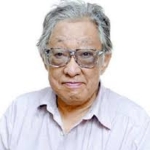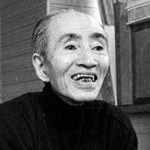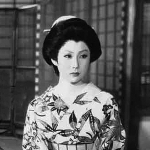Background
Yamada was born on February 5, 1917, in Osaka as Mitsu Yamada. Her father, Kusuo Yamada, was a stage actor specializing in onnagata roles and her mother, Ritsu, was a geisha.


(It's one of Japan's most beloved chanbara (samurai cinema...)
It's one of Japan's most beloved chanbara (samurai cinema) series, a group of seemingly ordinary merchants is really a band of assassins for hire. When they discover that all the assassins in Edo are being killed they must act quickly to find the culprit.
http://www.amazon.com/gp/product/B01CHHFPSU/?tag=2022091-20
2001
Yamada was born on February 5, 1917, in Osaka as Mitsu Yamada. Her father, Kusuo Yamada, was a stage actor specializing in onnagata roles and her mother, Ritsu, was a geisha.
Her family was poor, but under her mother's influence, Isuzu Yamada began learning nagauta (長唄, traditional Japanese music which accompanies the kabuki theater) and Japanese traditional dance from the age of six.
In 1930, Yamada Isuzu joined Nikkatsu Motion Picture Company. The same year she debuted as a film actress at the age of twelve, appearing in one of Nikkatsu films. She soon became one of Nikkatsu's top actresses, but it was her strong portrayals of two rebellious modern girls in Kenji Mizoguchi's "Osaka Elegy" and "Sisters of the Gion" in 1936 that earned her popularity and critical acclaim. These two films were filmed at Daiichi Eiga studio.
In 1938, Yamada Isuzu joined Toho Motion Picture Company. There she starred in a series of films with Kazuo Hasegawa, such as "Tsuruhachi and Tsurujiro" by Mikio Naruse (1938) and "The Man Who Disappeared Yesterday" by Masahiro Makino (1941).
Yamada appeared in the films of many Japanese directors, including Ozu Yasujiro for "Tokyo Twilight" (1957) and Akira Kurosawa for "The Lower Depths" (1957), "Throne of Blood" (1957) and "Yojimbo" (1961).
From the middle of the 1950s, she started to appear more and more on stage and on television, including the Hissatsu series.
Yamada earned numerous awards during her long career. She earned Blue Ribbon Award twice, in 1952 and 1956. She also received Special Award from the Chairman of the Japan Academy in 1995 for her lifetime achievements in cinema.
She was named a Person of Cultural Merit by the Japanese government in 1998 and became the first actress to receive the illustrious Order of Culture from the Emperor of Japan in 2000. Order of Culture is considered one of Japan's «top cultural awards».
(Throne of Blood is a Japanese samurai film co-written and...)
1957(Yojimbo (用心棒, Yōjinbō) is a samurai film directed by Akir...)
1961(It's one of Japan's most beloved chanbara (samurai cinema...)
2001Yamada was married four times, first to the actor Ichirō Tsukita, second to the producer Kazuo Takimura, third to the actor Yoshi Katō, and fourth to the actor Tsutomu Shimomoto. Her daughter with the producer Tsukita, Michiko (1934—1992) became famous as the actress Michiko Saga.




